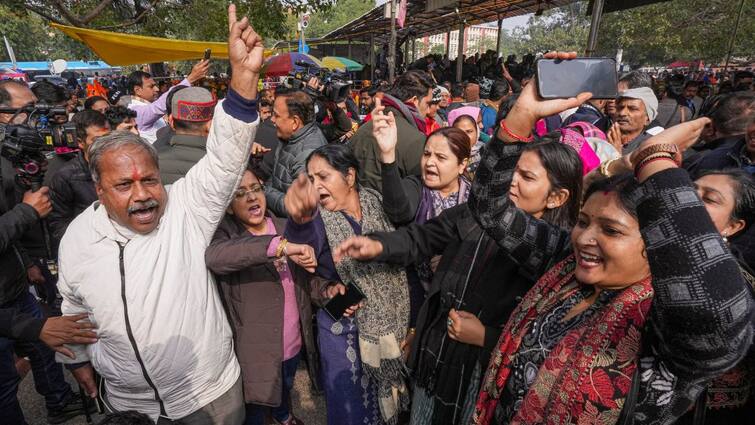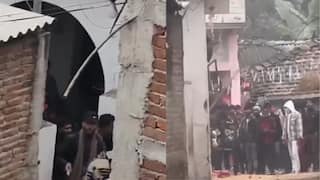Rise In HMPV Cases May Impact Delhi Assembly Elections 2025: Election Commission On Alert
Should the health review suggest significant risks, the ECI may introduce restrictions similar to those enforced during the COVID-19 pandemic.

The Election Commission of India (ECI) has not yet announced the poll schedule for the Delhi Assembly elections 2025. However, concerns have emerged regarding the potential impact of Human Metapneumovirus (HMPV) on the electoral process, following the reporting of three HMPV cases in India on Monday.
According to sources, the ECI has taken note of the situation and initiated discussions with election officials in Delhi regarding safety protocols. Sources indicate that the commission is also considering consultations with the Ministry of Health to assess the severity of the situation and determine necessary precautions.
READ | Atishi Breaks Down Over Ramesh Bidhuri's 'Changed Her Father' Remark: 'You Will Stoop Down To This'
Should the health review suggest significant risks, the ECI may introduce restrictions similar to those enforced during the COVID-19 pandemic. These could include limits on election campaigns, public rallies, and modifications to voting procedures. A final decision will be taken following a detailed meeting with the Health Secretary.
During the COVID-19 crisis, strict protocols were enforced, including capping rally attendance and mandating safety measures. However, experts have pointed out that HMPV, based on current information, is less severe than COVID-19, and there is no cause for public panic at this stage.
ALSO ON ABP LIVE | Delhi Final Voter List Released Amid AAP-BJP 'War Of Words' Over Electoral Roll
What Is HMPV?
Human Metapneumovirus (HMPV) is a globally recognised respiratory virus that has recently gained attention following an outbreak reported in China. On Monday, two cases of HMPV were reported in Karnataka and one in Gujarat.
HMPV is a viral pathogen responsible for respiratory infections in individuals across all age groups. Discovered in 2001, it belongs to the Paramyxoviridae family and shares a close relationship with the Respiratory Syncytial Virus (RSV). The virus spreads through respiratory droplets generated by coughing or sneezing, as well as through contact with contaminated surfaces or direct interaction with infected individuals.
This virus can cause a spectrum of illnesses, ranging from mild respiratory discomfort to severe complications, particularly in vulnerable populations such as infants, older adults, and those with weakened immune systems. It circulates globally, with peak activity observed during late winter and early spring in temperate regions, though it remains active year-round in certain areas.
Transmission And Prevention
HMPV transmission occurs in a manner similar to other respiratory viruses like RSV and influenza. The primary modes of transmission include respiratory droplets and contact with contaminated surfaces. Preventive measures include practising good hand hygiene, such as frequent handwashing with soap and water.
Maintaining respiratory etiquette—covering the mouth and nose while sneezing or coughing—and wearing masks can help limit the spread of the virus. Avoiding close contact with infected individuals and regularly disinfecting frequently touched surfaces are also effective preventive strategies.
How Long Does HMPV Last?
In mild cases, HMPV typically lasts a few days to a week. Severe cases may require a longer recovery period. Lingering symptoms, such as a persistent cough, may take additional time to resolve.
Diagnosis Of HMPV
Diagnosing HMPV based solely on clinical symptoms is challenging, as its presentation resembles other respiratory infections, including RSV and influenza. The gold standard for HMPV diagnosis is Reverse Transcription Polymerase Chain Reaction (RT-PCR), which detects viral RNA. Additionally, antigen detection assays provide quicker diagnostic results.
Related Video
Navi Mumbai Civic Polls: Shiv Sena and BJP to Contest Separately, No Alliance Announced

































